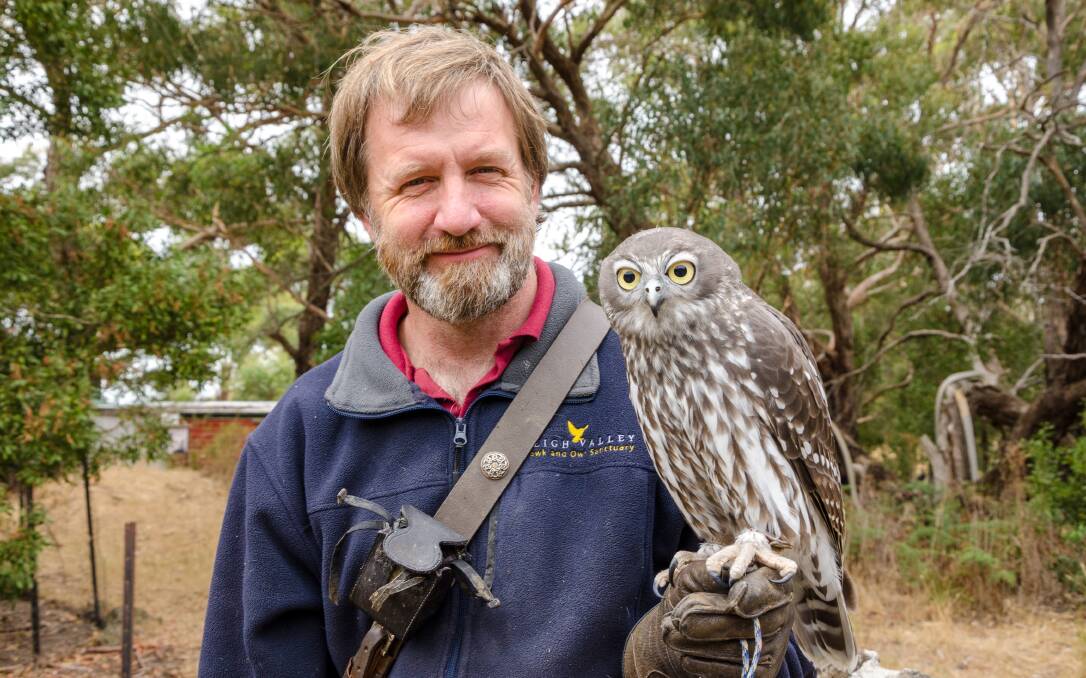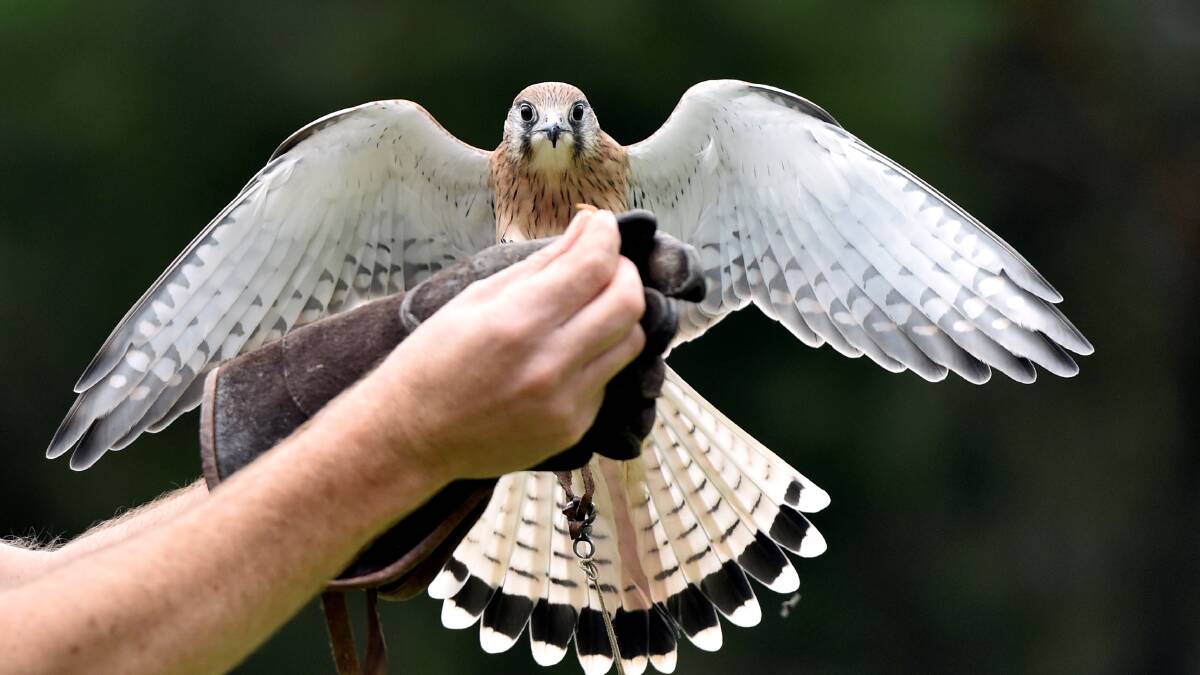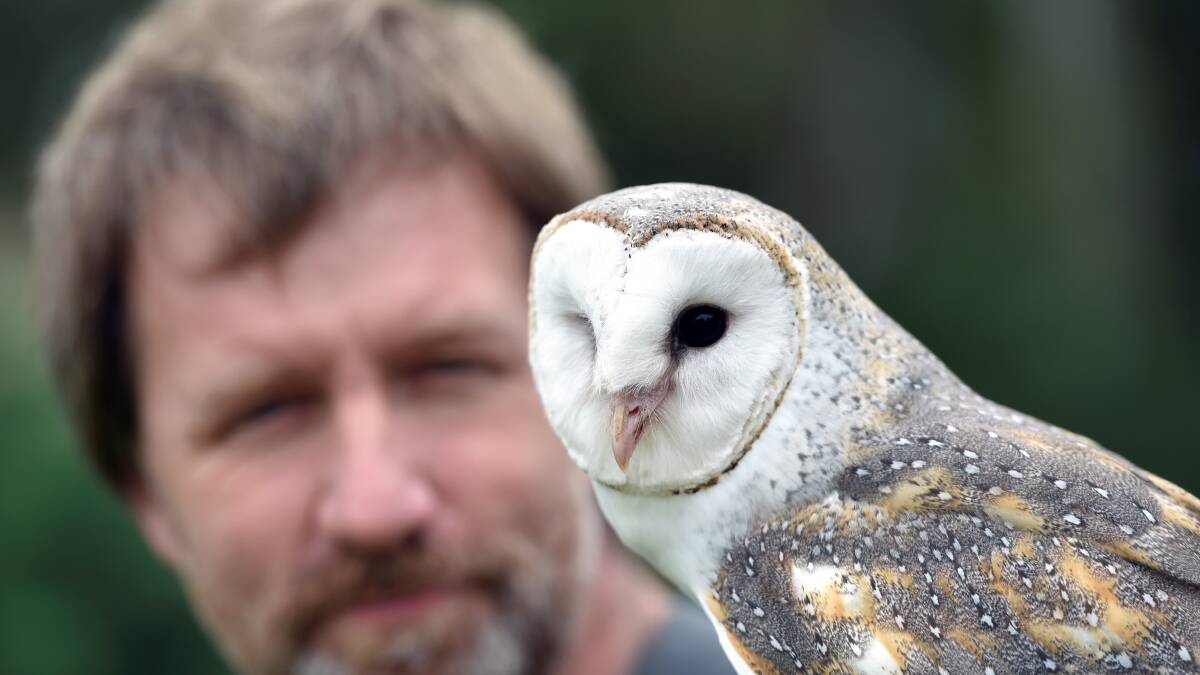
For 18 years, raptor expert Martin Scuffins and his wife Talia Barrett have devoted their time to healing and rehabilitating injured birds.
Subscribe now for unlimited access.
or signup to continue reading
The pair set up the The Leigh Valley Hawk and Owl Sanctuary to help injured birds of prey but in the last three years, have shifted their focus to raptor demonstrations and education.
Mr Scuffins and Mrs Barrett now have 11 of their own raptors trained for the demonstrations.
Late last month, Mr Scuffins announced on social media that he would be stepping back from his rescue and rehabilitation commitments to focus more on his own birds and to spend more time with his human family.
Mr Scuffins had made a name for himself in Ballarat and Victoria as the go-to when members of the public found injured birds of prey.
He said healing wild birds was a wonderful experience and the decision to step away was not one made easily.
“It was fantastic, apart from anything else, I learnt so much about the birds such as medicine, training, and psychology by caring for them,” he said.
“It was like a very intense raptor biology course that I have been able to apply to my own team of birds, it was my apprenticeship in understanding how they work.
“This is a reluctant decision with a huge amount of guilt, there are not may people with these skills out there to care for injured raptors.”

He said the care and attention he was dedicating to the rehabilitation of injured wild birds was taking away from time caring for his own.
“We have a team of 11 birds of prey of our own that we use for education and to give them the best life they can have, I have made this decision,” he said.
“I have to prioritise my birds, I have to treat them well and they need me.
“With the rehab birds, the need to keep pushing them and keeping their momentum towards release took up my time over pretty much anything else.”
I have had to put down hundreds of birds over the years and it was hard at first, then I seemed to toughen up and it got easier while never being easy, but more recently it's depressing me more and more.
- Martin Scuffins
During his time as a one-man raptor hospital, Mr Scuffins has worked alongside the Ballarat office of the Department of Environment, Land, Water and Planning as well as local shelters.
“Local DELWP have been fabulous with their support over the last 18 years and I wish head office would delegate to regions where there is a wealth of common sense and knowledge,” he said.
“Governments have got a bit of kiss or kill mentality, we either release or euthanase and there is not a lot of flexibility in that.
“Personally, in some circumstances, I would like more flexibility and for the system to be more meritorious so that the occasional unreleasable bird might be retained for education or breeding.”
While not a veterinarian, Mr Scuffins is an environmental scientist with a biological science degree from the University of Ballarat.
His life-long interest in birds is what lead him to working with raptors and he said the emotional fatigue of rehabilitating injured birds was a contributing factor to his recent decision.
“Emotionally, it can be quite exhausting but that depends on how inundated we are with birds,” he said.
“About 50 per cent of the birds I take in make it; half the birds you are euthanising straight away, the most difficult aspect is collecting the injured bird from the public who are upset by the whole thing.
“When I pick it up is it often immediately obvious that it will end up being euthanised and this then has to be explained to the public.”

He said he hopes his absence from raptor care will not cause too much stress on the other shelters and sanctuaries in the area.
“I want to make it clear, compared to some people, I have nothing to complain about; for example, compared to Badger Wildlife Rescue the volume of injured wildlife I take in is microscopic,” he said.
“I feel guilty because as I step back from rescue, they will get more calls they will have to attend and they already do an extraordinary amount of work.”
Mr Scuffins and Mrs Barrett will continue to provide training and consultancy to wildlife shelters and rescue organisations as well as their educational demonstrations.
READ MORE: Nocturnal hunters at Glenlyon














